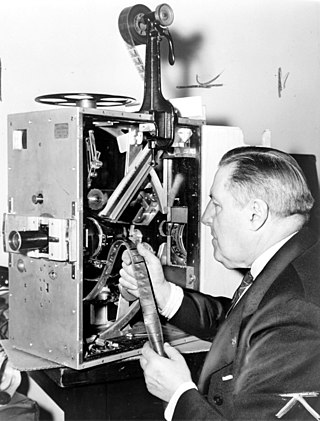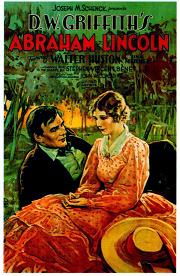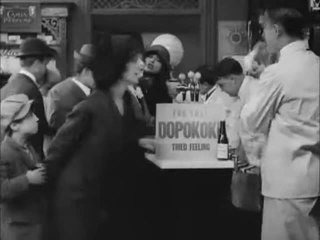Related Research Articles

David Wark Griffith was an American film director. Considered one of the most influential figures in the history of the motion picture, he pioneered many aspects of film editing and expanded the art of the narrative film.

Gottfried Wilhelm Bitzer was an American cinematographer, notable for his close association and pioneering work with D. W. Griffith.

Intolerance is a 1916 epic silent film directed by D. W. Griffith. Subtitles include Love's Struggle Throughout the Ages and A Sun-Play of the Ages.

Robin Hood: Men in Tights is a 1993 adventure comedy film and a parody of the Robin Hood story. The film was produced and directed by Mel Brooks, co-written by Brooks, Evan Chandler, and J. David Shapiro based on a story by Chandler and Shapiro, and stars Cary Elwes, Richard Lewis, and Dave Chappelle in his film debut. It includes frequent comedic references to previous Robin Hood films, particularly Prince of Thieves, and the 1938 Errol Flynn adaptation The Adventures of Robin Hood.

Wilfred Van Norman Lucas was a Canadian American stage actor who found success in film as an actor, director, and screenwriter.

Abraham Lincoln, also released under the title D. W. Griffith's "Abraham Lincoln", is a 1930 pre-Code American biographical film about Abraham Lincoln directed by D. W. Griffith. It stars Walter Huston as Lincoln and Una Merkel, in her second speaking role, as Ann Rutledge. The script was co-written by Stephen Vincent Benét, author of the Civil War prose poem John Brown's Body (1928), and Gerrit Lloyd. This was the first of only two sound films made by Griffith.

Crazy in Alabama is a 1999 American comedy-drama film directed by Antonio Banderas and based on Mark Childress' 1993 novel of the same name. The film stars Melanie Griffith as an abused housewife who becomes an actress, while her nephew deals with a racially motivated murder involving a corrupt sheriff. It marked Dakota Johnson's film debut.

Edward Dillon was an American actor, director and screenwriter of the silent era. He performed in more than 320 films between 1905 and 1932 and also directed 134 productions between 1913 and 1926. He was a native of New York City.
His Trust is a 1911 American silent drama film directed by D. W. Griffith. It concerns "The faithful devotion and self- sacrifice of an old negro servant," who is played in blackface by Wilfred Lucas. The film's sequel is His Trust Fulfilled. Prints of the film survive in the film archives of the Museum of Modern Art and the Library of Congress.

The Lonedale Operator is a 1911 short American drama film directed by D. W. Griffith, starring Blanche Sweet and written by Mack Sennett for the Biograph Company. The plot of the film involves a girl who takes over a telegraph station after her father takes ill. After the payroll for the town's mine is delivered, two drifters try to steal the money. Their robbery is foiled because the girl is able to telegraph for help and then hold the would-be robbers off until help arrives. The Lonedale Operator includes "elements of romance, drama, suspense, Western, and even a bit of comedy near the end."

The Unwelcome Guest is a 1913 American silent drama film directed by D. W. Griffith.
The Rocky Road is a 1910 American short silent drama film directed by D. W. Griffith and starring Frank Powell. Prints of the film survive in the film archives of the Library of Congress and the Museum of Modern Art.
Was He a Coward? is a 1911 American short silent Western film directed by D. W. Griffith and starring Blanche Sweet. A print of the film survives in the film archive of the Museum of Modern Art.

Enoch Arden is a two-part 1911 short silent drama film, based on the 1864 Tennyson poem of the same name. It was directed by D. W. Griffith, starred Wilfred Lucas and featured Blanche Sweet. A print of the film survives in the film archive of the Library of Congress.

For His Son is a 1912 American short silent drama film directed by D. W. Griffith and starring Blanche Sweet. The film was shot in Fort Lee, New Jersey when Biograph Company and other early film studios in America's first motion picture industry were based there at the beginning of the 20th century. A print of the film survives today.
The Punishment is a 1912 American short silent drama film directed by D. W. Griffith and starring Blanche Sweet.
A Temporary Truce is a 1912 American short silent Western film directed by D. W. Griffith and starring Blanche Sweet. A print of the film survives in the film archive of the Library of Congress.
The Fight for Freedom is a 1908 American black-and-white short silent Western film which may have been directed by D. W. Griffith. Filmed in Shadyside, New Jersey in June 1908, the film was released on July 17, 1908.

Scarlet Days is a 1919 American silent Western film produced and directed by D. W. Griffith and released through Paramount/Artcraft Pictures, Artcraft being an affiliate of Paramount. Richard Barthelmess stars in a role for which Griffith had screentested Rudolph Valentino. In today's time, this film is considered by many to be one of Griffith's worst films though it might have worked better as a short film. This film was unlike others created by D.W. Griffith. According to an article written for The Cincinnati Enquirer, written on the 16 of November 1919: "Unlike other recent Griffith production, Scarlet Days is a story of the old West, of the gold rush days of 49- Bret Harte transferred to the screen!" The Western film genre was expanding at this time and Scarlet Days fits into this category. Western films were popular for this time.
The Girls and Daddy is a 1909 American silent short drama film directed by D. W. Griffith with Griffith appearing in a small blackface role. A print of the film exists in the film archive of the Library of Congress.
References
- ↑ Simmon, Scott (30 July 1993). Carney, Raymond (ed.). The Films of D. W. Griffith. CUP Archive. p. 33. ISBN 9780521388207.
- ↑ Lucas, Tony. The Lucas Family. Lulu.com. ISBN 9781447741176.